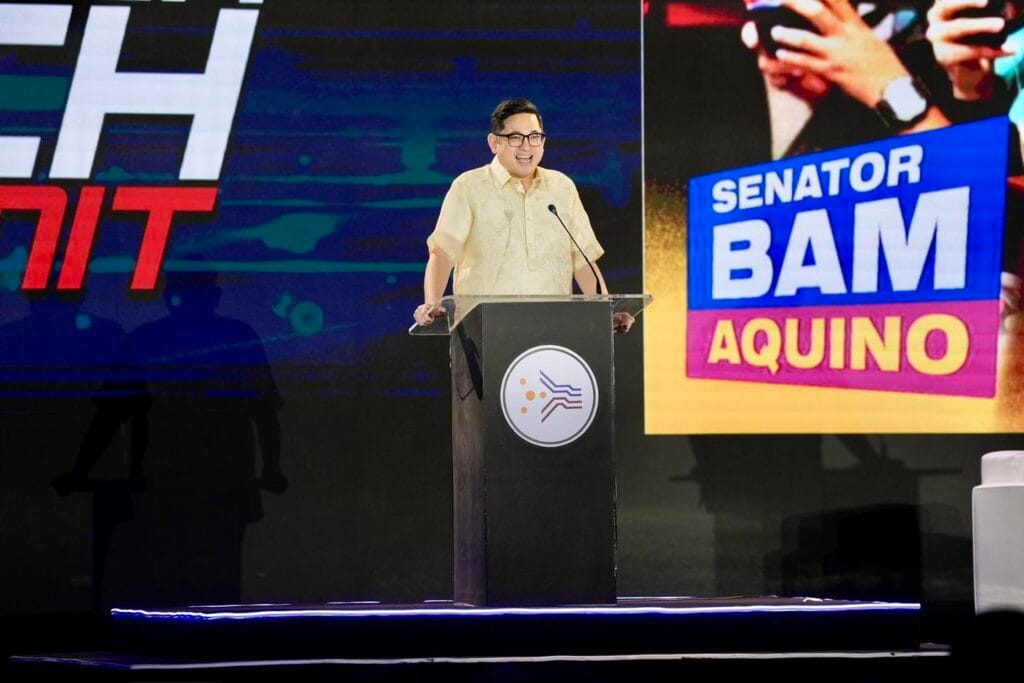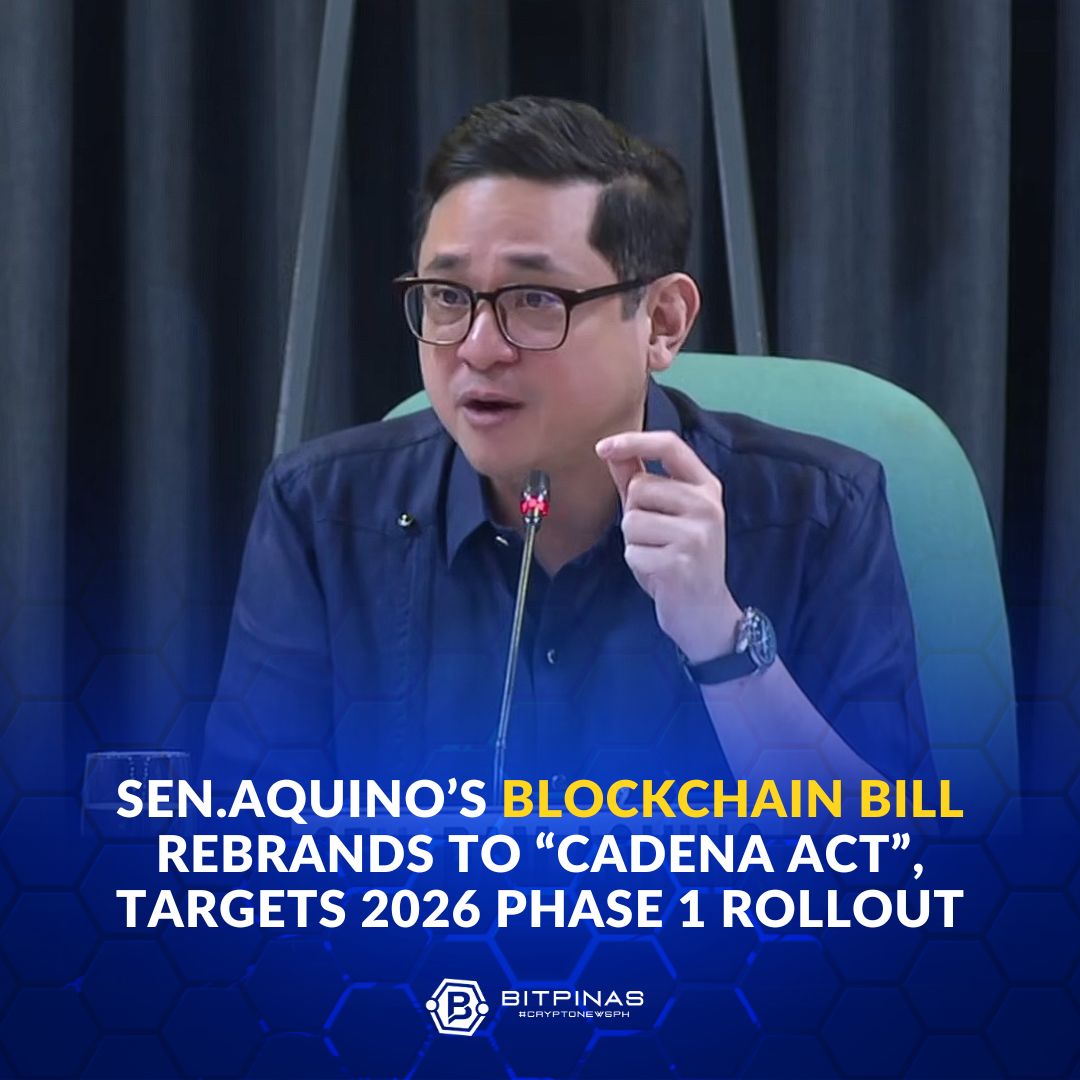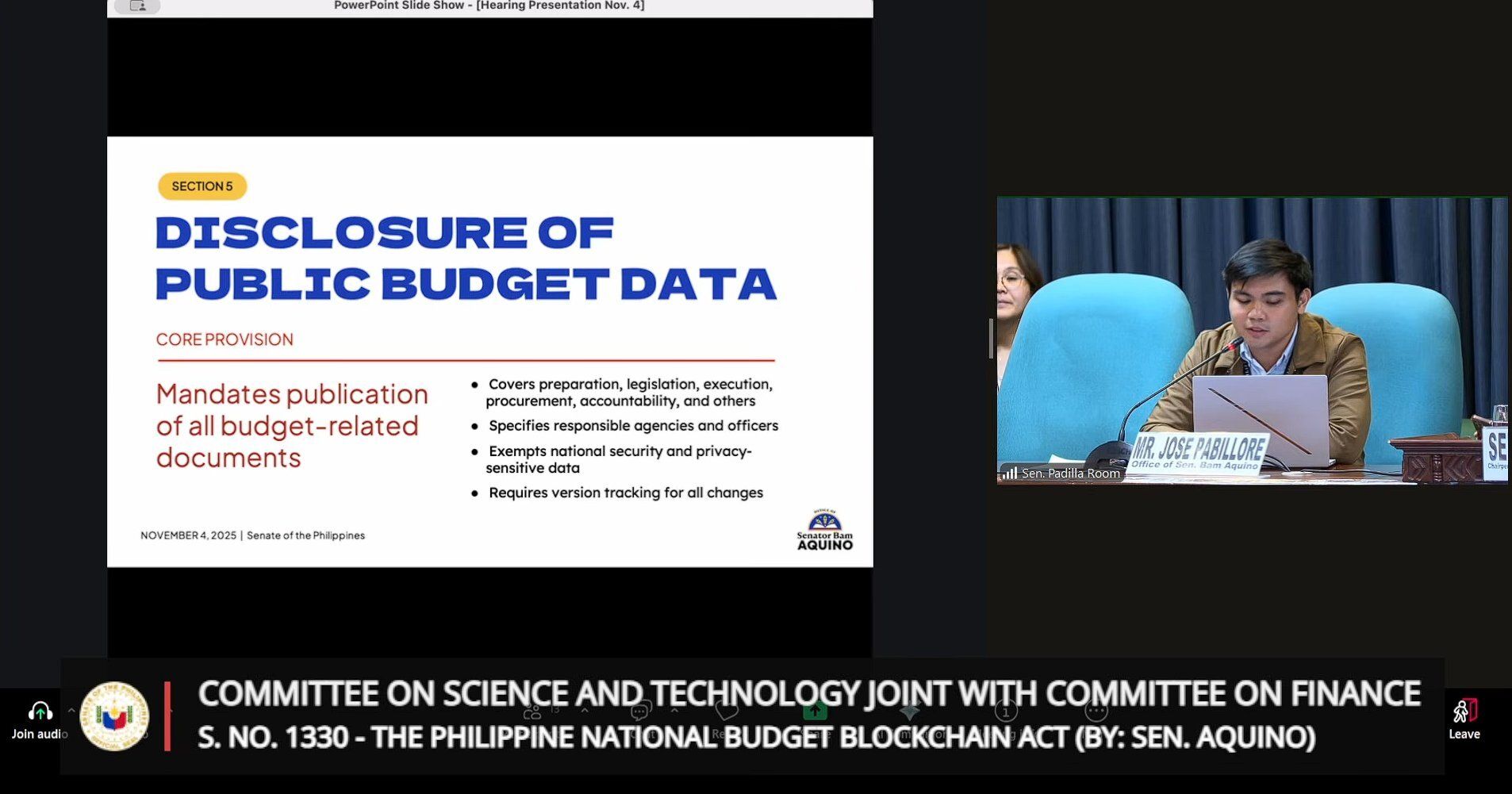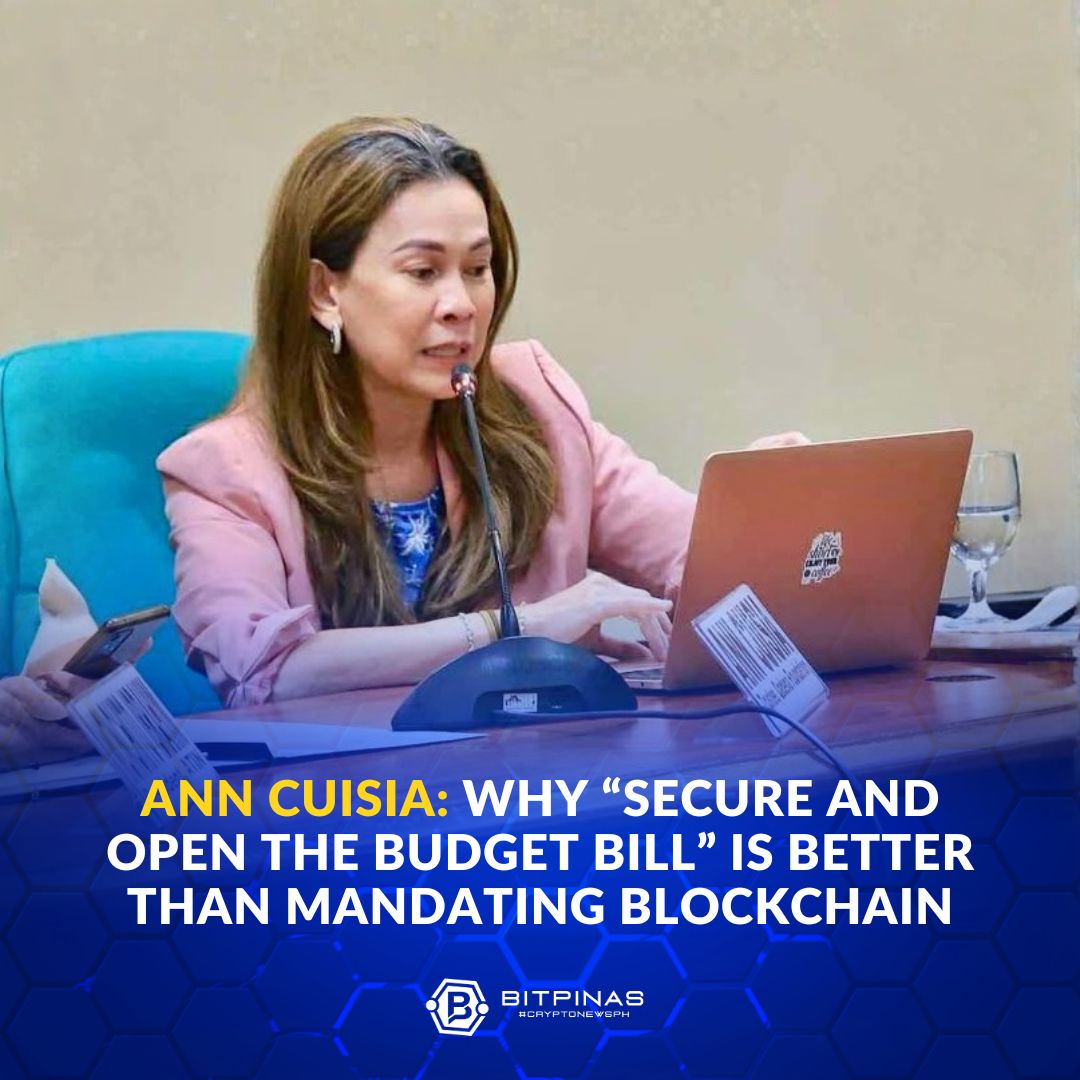This week, the Senate Committee on Science and Technology held a joint hearing with the Committee on Finance to tackle a landmark proposal: Senate Bill No. 1330.
What began months ago as the "Blockchain the Budget Bill" has now officially evolved into the "Cadena Act". This change is a significant shift in legislative strategy, born from months of intense public (online and offline) debate and discussion. As AI and tech advocate Dominic Ligot put it, the outcome (the revised bill) actually “exemplified citizen collaboration and crowdsourcing. And the speed to achieving it (barely a month from the first hearing) is unprecedented.”
Ligot credited not just the visible names but all the nameless people who made this possible.
But how did we get from a bill named after a specific technology to the more neutral "Cadena"?
(Side note: If you found this insightful, please forward to your colleagues or share the online version. Feel free to subscribe below:)
The Original Pitch: “Blockchain The Budget”

Photo from Sen. Bam Aquino Facebook Page
When Senator Bam Aquino first filed S.B. 1330, the proposal was explicit: place the Philippine national budget on a blockchain. "Bawat piso, kita ng publiko," Aquino declared, aiming to make every contract and project trackable by any Filipino.
The first public hearing on October 2, 2025, gathered strong support from tech advocates and public servants:
DICT Secretary Henry Aguda championed the bill, stating that blockchain use could "eliminate corruption" and even agreed to ask the President to certify the bill as urgent.
Baguio City Mayor Benjamin Magalong testified that his LGU's "GoodGovChain" project with Bayanichain was a prime example of how blockchain could aid transparency and fight corruption.
The Blockchain Council of the Philippines formally issued a statement of support for the bill.
The Pushback: "Blockchain Won't Stop Corruption"
Almost immediately, the bill's tech-specific focus drew sharp feedback from experts who argued that blockchain was not a magic bullet.
Former DICT Undersecretary Jeffrey Ian Dy argued that "blockchain, by itself, will not eliminate corruption". He stressed it wouldn't prevent collusion or terms of reference (TORs) being "written to favor specific vendors".
Volunteer-led BetterGov.PH even created “OpenGovChain”, which its founder said he created in one day, just to show that you don’t need millions of money to put up a blockchain for budget documents.
Former Solicitor General Florin Hilbay and columnist Art Samaniego warned that blockchain could only make data immutable, not truthful. If fraudulent data was entered, the technology would just preserve that fraud permanently.
The debate also highlighted that by naming "blockchain" in the bill's title, the government risked locking itself into a specific technology that might become outdated.
The Evolution: The "Cadena Act" Emerges

This brings us to this week's hearing. The bill's new name, the "Cadena Act" (derived from the Spanish word for "chain"), and the discussion itself demonstrated a direct response to all the voiced concerns.
The debate over "locking in" a technology was front and center.
AJ Montesa of People’s Budget Coalition voiced his concern that despite the focus on tech neutrality, the specifics still point to blockchain: "Is there an alternative to blockchain... it feels we're locking" into one tech. He worried it "might favor certain industry interest... rather than the end user."
Senator Aquino's response showed the bill's new, more nuanced position. He clarified the bill is now "tech neutral", but defended blockchain's current suitability: "if that's the tech that fits the standard, why are we... [hesitant] to use it... right now blockchain seems to be the best possible tech."
On concerns about vendor selection, Aquino admitted that it will be under the implementation phase, but they will still guard because they will have oversight. He even challenged the interested groups, stating, “If you want to see this bill through, why don’t you bid for it at zero cost?”
DICT Undersecretary David Almirol, representing the agency at this hearing, cautioned against "overthinking the technicality". "We aim to make a transparency portal. Whatever tech we'll use later on, we can resolve that on the IRR (implementing rules and regulations)".
What the "Cadena Act" Will Do

Despite the name change, the core goals remain, but with new mechanisms to address the "garbage in, garbage out" problem.
Total Disclosure: Section 5 mandates the publication of all budget documents, from preparation to procurement and execution.
Citizen-Led Oversight: The bill creates a "National Budget and Transparency Accountability Council" (NBTAC) to oversee the platform. Crucially, its members include not just government agencies but also three citizen representatives from civil society, academia, and the media.
Real Penalties: To deter fraudulent data entry, the bill introduces stiff criminal offenses. Failure to upload data within 30 days, or publishing false information, can result in imprisonment of 6 to 15 years and a fine of up to P3,000,000.00.
Data Owned by the People: The bill explicitly states that all the data is "owned by the Filipino people," with the DICT acting as the "primary custodian".
Why it matters: This is a high-stakes legislative evolution. It shows a response to expert feedback, and then the bill moved from being tech-specific to a more durable, tech-neutral transparency mandate. The focus has successfully shifted from how the ledger is built to who it serves and how it is guarded.
What’s next: Senator Aquino is set to sponsor the "Cadena Act" on the Senate floor on next week. He hopes to have Phase 1 - immediate disclosure of documents on agency websites - completed within the first quarter of 2026 when the bill becomes a law.
Will this more mature "Cadena Act" succeed where the "Blockchain the Budget" first started?
Final words
Thank you for reading! If this is interesting, let us know by replying on this email!
Please share the newsletter with everyone who you think will find it worth reading.
For the latest news and updates, do not forget to follow BitPinas!

